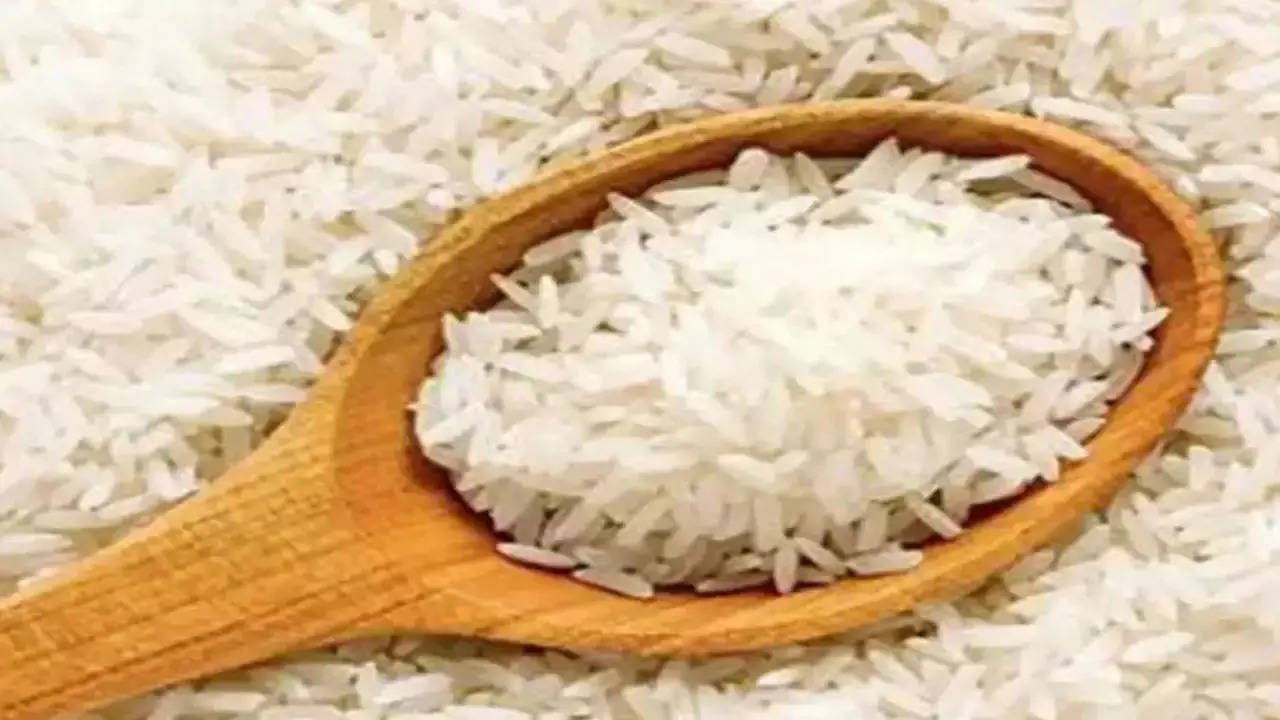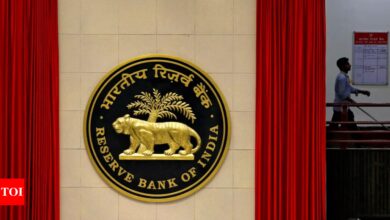Business
Govt notifies regulatory standards for basmati rice

[ad_1]
NEW DELHI: The government, for the first time, has notified regulatory standards for basmati rice which will be enforced from August 1, 2023.
Being a premium quality rice and fetching prices higher than other varieties, basmati rice is prone to various types of adulteration which include, among others, undeclared blending of other non-basmati varieties of rice.
The notification issued by the Food Safety and Standards Authority of India (FSSAI) says setting a regulatory standard will ensure supply of genuine basmati rice, in both domestic and export markets.
It states that basmati rice (including brown basmati rice, milled basmati rice, parboiled brown basmati rice and milled parboiled basmati rice) shall possess natural fragrance and it should be free from artificial colouring, polishing agents and artificial fragrances.
The regulatory standards also specify various identity and quality parameters for basmati rice such as average size of grains and their elongation ratio after cooking; maximum limits of moisture; amylose content; uric acid; defective/damaged grains and incidental presence of other non-basmati rice, etc.
The notification, for example, says brown basmati rice should be 7 mm and above in length and its cooked rice length should be 12 mm and above, on an average. Milled basmati rice, it adds, should be 6.61 mm in length and on cooking the length should be 12 mm and above, on an average.
Basmati is a premium variety of rice cultivated in the Himalayan foothills of the Indian sub-continent and is universally known for its long grain size, fluffy texture and unique inherent aroma and flavour.
Agro-climatic conditions of the specific geographical areas where basmati rice is grown; as well as the method of harvesting, processing and ageing of the rice contributes to the uniqueness of the variety, the government said in a statement.
It stated further that due to the rice’s unique quality attributes, basmati is a widely consumed variety of rice both domestically and globally and India accounts for two thirds of its global supply.
“Being a premium quality rice and fetching a price higher than the non-basmati varieties, basmati rice is prone to various types of adulteration for economic gains which may include, among others, undeclared blending of other non-basmati varieties of rice,” the statement said.
“First time in India! @FSSAIIndia notifies comprehensive regulatory standards for Basmati Rice. It shall possess natural fragrance & be free from artificial colouring, polishing agents & fragrances.
Being a premium quality rice and fetching prices higher than other varieties, basmati rice is prone to various types of adulteration which include, among others, undeclared blending of other non-basmati varieties of rice.
The notification issued by the Food Safety and Standards Authority of India (FSSAI) says setting a regulatory standard will ensure supply of genuine basmati rice, in both domestic and export markets.
It states that basmati rice (including brown basmati rice, milled basmati rice, parboiled brown basmati rice and milled parboiled basmati rice) shall possess natural fragrance and it should be free from artificial colouring, polishing agents and artificial fragrances.
The regulatory standards also specify various identity and quality parameters for basmati rice such as average size of grains and their elongation ratio after cooking; maximum limits of moisture; amylose content; uric acid; defective/damaged grains and incidental presence of other non-basmati rice, etc.
The notification, for example, says brown basmati rice should be 7 mm and above in length and its cooked rice length should be 12 mm and above, on an average. Milled basmati rice, it adds, should be 6.61 mm in length and on cooking the length should be 12 mm and above, on an average.
Basmati is a premium variety of rice cultivated in the Himalayan foothills of the Indian sub-continent and is universally known for its long grain size, fluffy texture and unique inherent aroma and flavour.
Agro-climatic conditions of the specific geographical areas where basmati rice is grown; as well as the method of harvesting, processing and ageing of the rice contributes to the uniqueness of the variety, the government said in a statement.
It stated further that due to the rice’s unique quality attributes, basmati is a widely consumed variety of rice both domestically and globally and India accounts for two thirds of its global supply.
“Being a premium quality rice and fetching a price higher than the non-basmati varieties, basmati rice is prone to various types of adulteration for economic gains which may include, among others, undeclared blending of other non-basmati varieties of rice,” the statement said.
“First time in India! @FSSAIIndia notifies comprehensive regulatory standards for Basmati Rice. It shall possess natural fragrance & be free from artificial colouring, polishing agents & fragrances.
First time in 🇮🇳! @FSSAIIndia notifies comprehensive regulatory standards for Basmati Rice.It shall possess natur… https://t.co/ml7raZViQc
— Dr Mansukh Mandaviya (@mansukhmandviya) 1673522029000
“This will establish fair practices in trade of Basmati & protect consumer interest,” tweeted Union health minister Mansukh Mandaviya.
#Govt #notifies #regulatory #standards #basmati #rice






